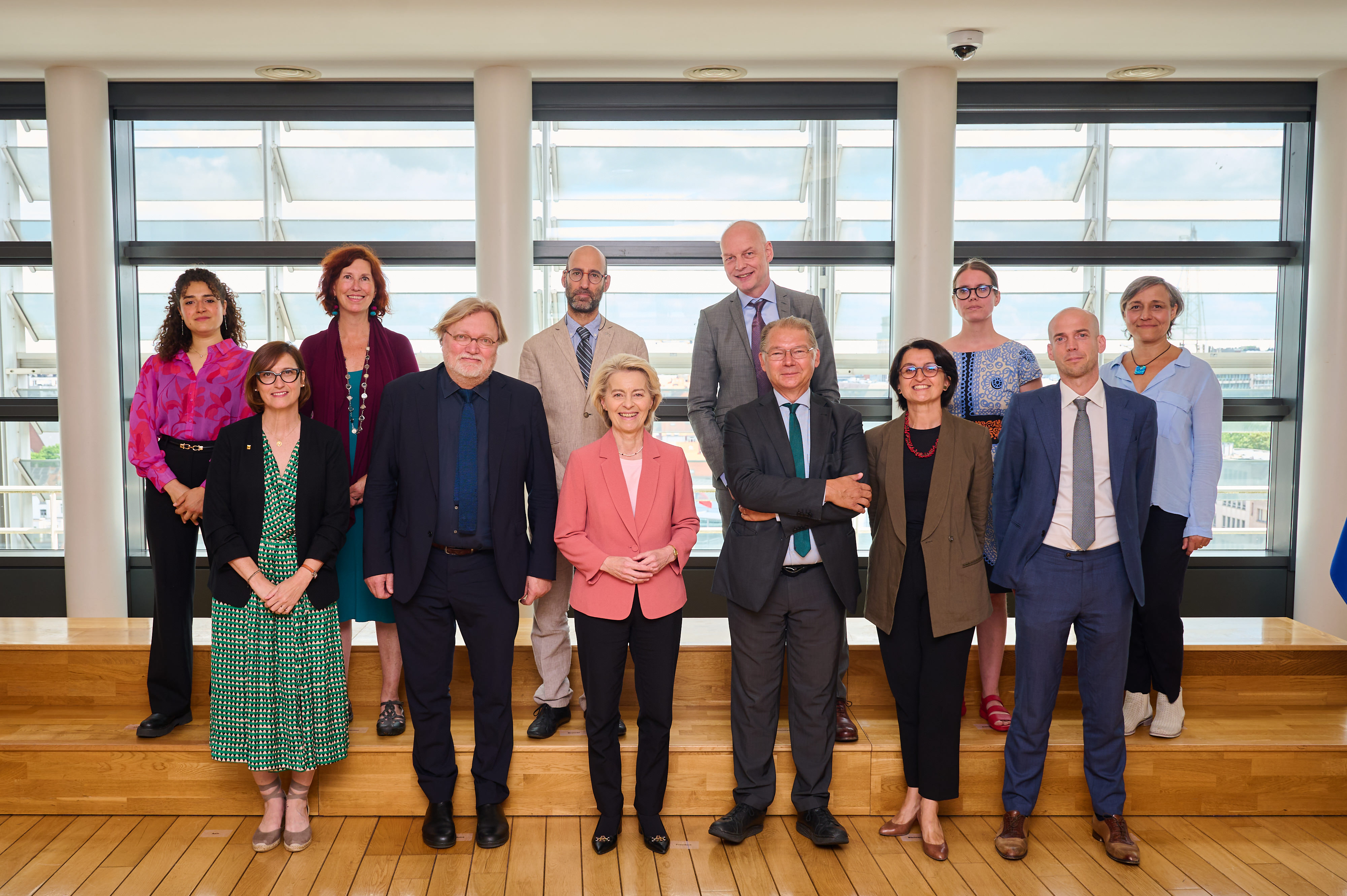Today, directors of the Green 10, of which HEAL is a member, met with European Commission President von der Leyen and shared civil society’s recommendations for policy action.
In a move to prioritise public health and environmental sustainability, eighteen leading environmental and health organisations have united to call on EU candidates to commit to a toxic-free Europe. This critical pledge comes just ahead of the upcoming EU elections, with 73 candidates from 23 national parties in 14 countries, including 16 heads of lists, vowing to address the pervasive threat of chemical pollution. The Pledge remains open for endorsement.
Today, chemical pollution is still a persistent menace in the EU. Harmful chemicals, including pesticides, are increasingly present in our food, water, air, soil, products, and even our bodies. The consequences are dire, with numerous health effects such as premature death, illness, infertility and cognitive impairments. Vulnerable groups, including children, pregnant women, the elderly and those facing health inequalities are particularly at risk.
The Toxic-free Pledge, developed by a coalition of experts from various health and environmental NGOs, outlines key actions for the next five years to combat the significant impact of harmful chemicals on health and the environment. There is still much work to be done to fully complete the ambition of the EU Chemicals Strategy for Sustainability. With 84% of EU citizens believing that EU environmental legislation is essential and 92% stating that companies should bear the costs of cleaning up pollution, swift action is crucial. This initiative aims to enhance health protection, drive innovation, and transition to safer, sustainable chemicals, ensuring a competitive EU industry.
If elected, candidates pledge to advocate for:
- A swift and protective reform of the EU chemicals law REACH
- A phase-out of ‘forever chemicals’- per and polyfluorinated alkyl substances – PFAS
- Innovation towards safer chemicals, materials and products
- Citizens’ access to justice
- Polluters being held accountable
- Transparency and traceability of chemicals
- A stop on export of chemicals banned in the EU
HEAL Programme Lead on Health and Chemicals Sandra Jen states “The EU Parliament has a decisive role to play with the EU Commission and Member States to increase the ambition of measures and pace of their implementation, to work towards a healthy planet for healthy people in the new policy cycle.”
EEB Chemicals Policy Officer Noémie Jégou states “It is time for change. Newly elected MEPs will have a unique opportunity to decisively combat chemical pollution and better protect citizens and future generations. Pollution affects us all, and the path to a toxic-free future begins with the implementation of these seven key priorities.”
As the new 2024-2029 mandate approaches, EU politicians must urgently address widespread pollution, and its negative impacts on health and the economy. Prioritising policies that protect health and the environment is crucial and widely demanded by the public.
The Toxic-free Pledge remains open for endorsement to candidates until the elections and to Members of the European Parliament post elections.
Notes:
List of supporting organisations:
- ARNIKA (Czech Republic)
- BBL – Bond Beter Leefmilieu (Belgium)
- BUND für Umwelt und Naturschutz Deutschland (Friends of the Earth Germany) (Germany)
- CEO – Corporate Europe Observatory (Belgium – EU)
- ClientEarth (Belgium – EU)
- CRIN – Child Rights International Network (Switzerland)
- Ecocity (Greece)
- Ecologistas en acción (Spain)
- EEB – European Environmental Bureau (Belgium – EU)
- Générations Futures (France)
- HCWH – Health Care Without Harm (Belgium – EU)
- HEAL – Health and Environment Alliance (Belgium – EU)
- HEJSupport – Health and Environment Justice Support (Germany)
- Hogar Sin Tóxicos (Spain)
- ISDE – International Society of Doctors for Environment (Switzerland)
- Tegengif (Netherlands)
- WECF – Women Engage for a Common Future (Netherlands)
- ZERO (Portugal)


